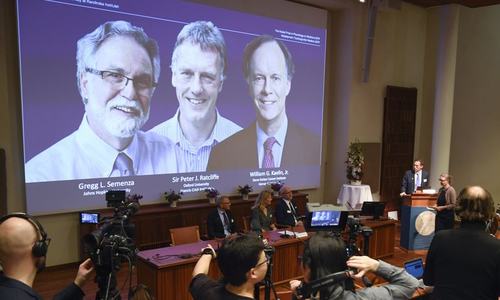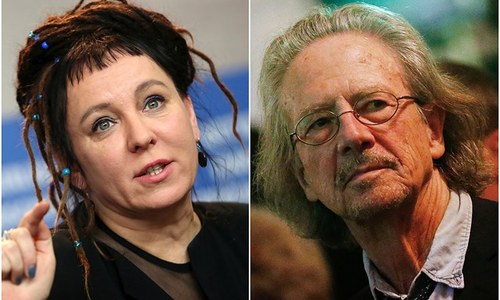Ethiopian Prime Minister Abiy Ahmed won the 2019 Nobel Peace Prize on Friday for his peacemaking efforts with Eritrea.
Ethiopia and Eritrea, longtime foes who fought a border war from 1998 to 2000, restored relations in July 2018 after years of hostility.
Berit Reiss-Andersen, the chairwoman of the five-member Norwegian Nobel Institute that awards the Nobel Peace Prize, said Ahmed was named for his moves to end his country’s conflict with next door Eritrea within months of coming to office in 2018. He signed a “Joint Declaration of Peace and Friendship” with Eritrean Prime Minister Isaias Afwerki.
Ahmed said he is “humbled and thrilled” by the award.
In audio of a call between the Nobel Committee and the Ethiopian leader, Abiy calls the award “a prize given to Africa, given to Ethiopia”.
He also laid out his hope that the award would be taken “positively” by other African leaders “to work on peacebuilding process on our continent”.
"The prize is also meant to recognise all the stakeholders working for peace and reconciliation in Ethiopia and in the East and Northeast African regions," said a statement from the Nobel committee.
"In Ethiopia, even if much work remains, Abiy Ahmed has initiated important reforms that give many citizens hope for a better life and a brighter future. He spent his first 100 days as Prime Minister lifting the country’s state of emergency, granting amnesty to thousands of political prisoners, discontinuing media censorship, legalising outlawed opposition groups, dismissing military and civilian leaders who were suspected of corruption, and significantly increasing the influence of women in Ethiopian political and community life.
"He has also pledged to strengthen democracy by holding free and fair elections," read the statement, noting, "In the wake of the peace process with Eritrea, Prime Minister Abiy has engaged in other peace and reconciliation processes in East and Northeast Africa."
The prize, worth nine million Swedish crowns, or around $900,000, will be presented in Oslo on December 10.
Nobel week
Two literature prizes were awarded on Thursday: One for 2018 that went to Polish novelist Olga Tokarczuk and one for 2019 that was given to Austrian author Peter Handke.
Both have courted controversy — Handke for his portrayal of Serbia as a victim during the Balkan wars and attending its leader’s funeral, and Tokarczuk for touching on dark areas of Poland’s past that contrast with the version of history promoted by the country’s ruling nationalist party.
The chemistry prize went to three scientists for their work leading to the development of lithium-ion batteries; the physics award was given to a Canadian-American and two Swiss for exploring the evolution of the universe and discovering a new kind of planet; and the physiology or medicine award went to two Americans and one British scientist for discovering details of how the body’s cells sense and react to low oxygen levels.
In his will, Alfred Nobel, the Swedish industrialist and inventor of dynamite, decided the peace prize should be awarded in Oslo. His exact reasons for having an institution in Norway handing out that prize is unclear, but during his lifetime Sweden and Norway were joined in a union, which was dissolved in 1905.
The economics prize wasn’t created by Nobel, but by Sweden’s central bank in 1968. It is awarded on Monday.
With the glory comes a 9-million kronor ($918,000) cash award, a gold medal and a diploma. Even though the peace prize is awarded in Norway, the amount is denominated in Swedish kronor.
The laureates receive them at elegant ceremonies on December 10 — the anniversary of Nobel’s death in 1896 — in Stockholm and Oslo.














































